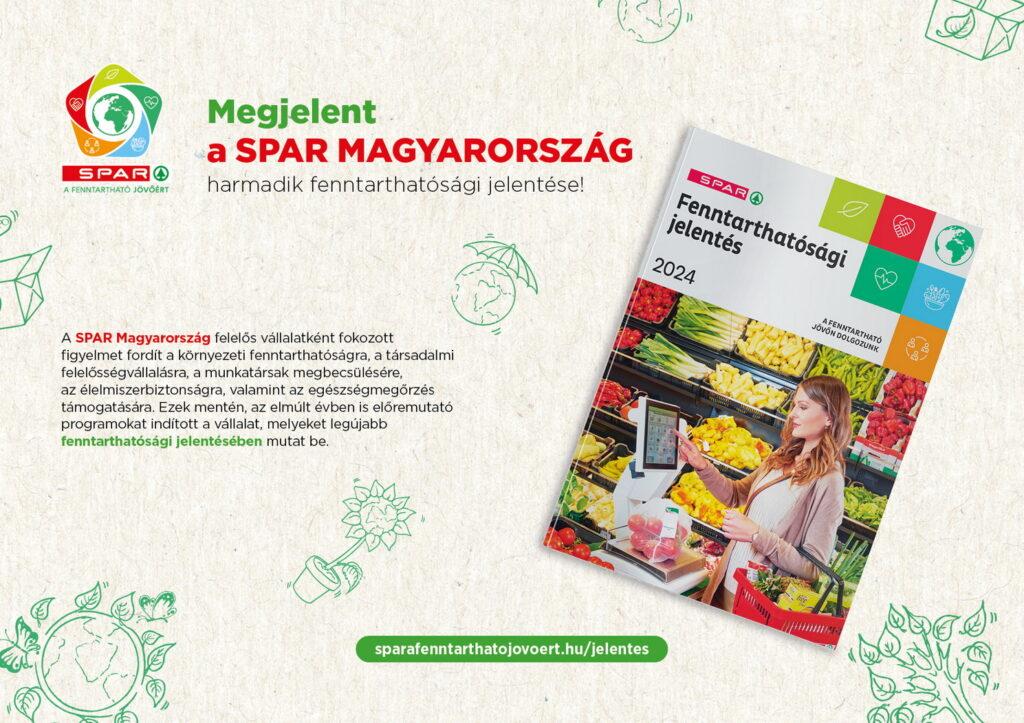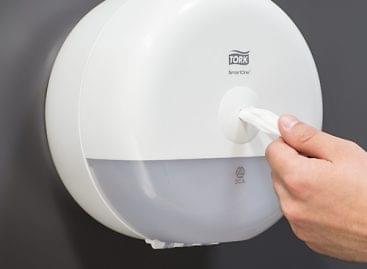4.8% less energy consumption, 90% domestic sources for food – SPAR’s new sustainability balance sheet
SPAR Hungary also made significant progress in sustainable operations in 2024. Modernized technological solutions reduced energy consumption and greenhouse gas emissions from its own sources, while the share of domestic suppliers exceeded 90% in the food product area. Customers also play an active role in reducing environmental impact: with their conscious decisions, they also contribute to energy-efficient operations.

SPAR’s energy consumption decreased by 4.8%, while its indirect carbon emissions from its own sources and energy purchases decreased by 9.5% compared to the previous year. LED lighting in stores, modern refrigeration systems and optimized logistics processes help to operate more economically, while in its own production units – such as Regnum meat plants and SPAR enjoy. convenience store – energy system modernizations have been implemented – revealed in the SPAR 2024 Sustainability Report.
“Sustainability is our common cause, in which the SPAR team tries to set an example. By choosing returnable or even own packaging, or domestic goods, customers also reduce the ecological footprint of their consumption”
– said Márk Maczelka, Head of Communications at SPAR Hungary. He added that effective cooperation with customers is well demonstrated by the fact that, for example, more than 400,000 of the near-expiry, discounted product packages were saved from being thrown away in 2024 through the Munch application.
SPAR Hungary continues to favor domestic suppliers: more than 90% of its food supply comes from domestic procurement sources. The Treasures of the Regions program now offers more than 600 products from 131 suppliers in different regions of the country, thus supporting short supply chains, reducing the environmental impact of transport and stimulating the local economy.
Significant results were also achieved in SPAR’s internal operations during 2024. The company’s logistics centers reduced waste production by a total of 73 tons last year. Thanks to packaging optimization, paper, plastic and wood-based single-use storage bins were almost completely replaced. New technologies installed in stores and logistics units saved 47 tons of waste, while the use of CHEP pallets reduced the annual environmental impact by another 26 tons. In addition, the vehicle fleet was expanded with 30 new trucks, which not only enable faster deliveries through optimized route planning, but also significantly reduce fuel consumption.
Related news
Bonduelle achieves B Corp™ certification worldwide
🎧 Hallgasd a cikket: Lejátszás Szünet Folytatás Leállítás Nyelv: Auto…
Read more >Related news
Festival buzz at the 60th anniversary EuroShop trade fair
🎧 Hallgasd a cikket: Lejátszás Szünet Folytatás Leállítás Nyelv: Auto…
Read more >






